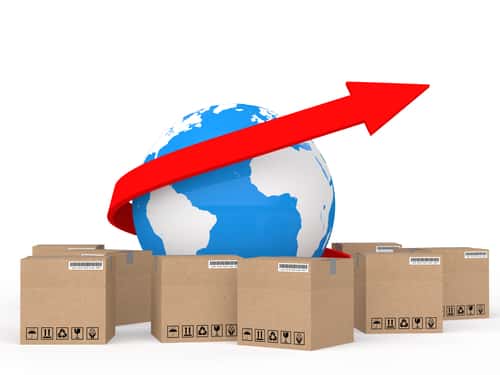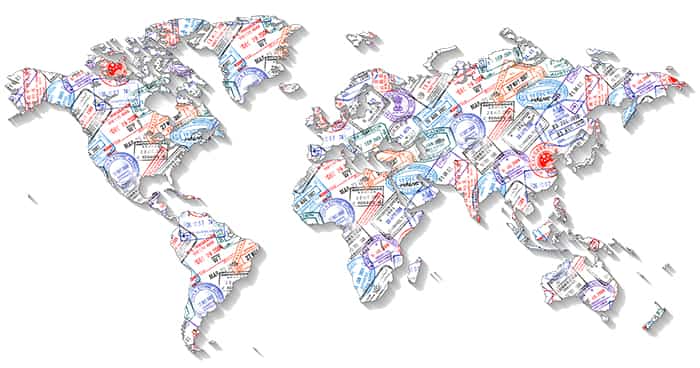India- UAE trade pact
I do believe that international trade agreements benefit both nations, always. Phil Knight
 India - UAE have agreed on a Comprehensive Economic Partnership Agreement. (CEPA) is the most significant bilateral trade pact between the two largest economies. The main objective of this agreement is to bring the bilateral trade in goods to US$100 billion by the year 2030. The India-UAE Comprehensive Economic Partnership Agreement (CEPA) is the first of several significant bilateral trade pacts that India has been negotiating to initiate international trade in the post-COVID-19 pandemic. India was negotiating trade agreements with complementary economies and is currently negotiating with the United Kingdom, the European Union, and Canada.
India - UAE have agreed on a Comprehensive Economic Partnership Agreement. (CEPA) is the most significant bilateral trade pact between the two largest economies. The main objective of this agreement is to bring the bilateral trade in goods to US$100 billion by the year 2030. The India-UAE Comprehensive Economic Partnership Agreement (CEPA) is the first of several significant bilateral trade pacts that India has been negotiating to initiate international trade in the post-COVID-19 pandemic. India was negotiating trade agreements with complementary economies and is currently negotiating with the United Kingdom, the European Union, and Canada.
Significance of this trade agreement
The India-UAE trade partnership is the first agreement India has reached in more than a decade to boost bilateral trade exports. In addition, this agreement is the first in the series of Free Trade Agreements that will significantly assist India in achieving its goal of 1 trillion dollar in goods and services by 2030. India is also in talks with Australia, UK, Canada, Israel, Europe and other countries such as initiate Free Trade Agreements. India could collaborate with the Gulf Cooperation Council (GCC) group of countries including Bahrain, Kuwait, Oman, Qatar, Saudi Arabia.
In accordance with the agreement, the UAE will gradually eliminate duties on 80% of its tariff lines which represent 90% of India’s exports to the UAE by value in terms of value. This is necessary for textiles and garments where Indian exporters have struggled with import tariffs. Currently, Indian exports of textile and leather are subject to a duty of 5% duty in the UAE whereas competitors’ products from Vietnam and Bangladesh are exempt from duty. Over the next five to ten years, India's products will have access to zero duty on 97% of UAE tariff lines, or 99% of India's exports. Gems and jewellery, textiles and clothing, footwear, leather, sports goods, engineering products, and pharmaceuticals are expected to benefit from this. In addition, 10 lakh Indian jobs are anticipated to be created as a result of the agreement.
Goods to be excluded from the agreement
Certain goods, which account for 10% of the tariff lines are on the sensitive list of products to be excluded from the agreement. Dairy products, fruits, vegetables, cereals, tea and coffee, sugar, instant foods, tobacco, toys, plastic, scraps of aluminum, and copper are among these. The agreement also excludes regions with significant growth in domestic product production or regions where the government supports manufacturing through PLI schemes..
Key areas to start new developments
This CEPA agreement states that the digital trade chapter is exempt from the dispute resolution process. According to government officials, the chapter includes topics like paperless trading, consumer protection, unsolicited commercial electronic messages, personal data protection, cross-border exchange of information, cooperation on digital products, and electronic payments. in an Free Trade Agreement indicating India’s willingness to discuss this topic in bilateral agreements.
Economic Partnership
They expressed confidence that the agreement would improve economic ties and open up new opportunities for trade and investment. They instructed their respective officials to encourage bilateral investments in infrastructure projects, including speeding up work on establishing a dedicated investment zone for UAE companies and joint ventures. In addition, the leaders urged Indian investors to establish specialized industrial advanced technology zones in the Emirate of Abu Dhabi integrating local value chains of both the current and upcoming specialized economic zones in the areas of logistics and services, pharmaceuticals, medical devices, agriculture, agri-tech, steel, and aluminum.
 Cultural Cooperation
Cultural Cooperation
India and the UAE have agreed to establish an India-UAE Cultural Council between two countries to foster cultural cooperation. The Indian Council for Cultural Relations and the UAE Ministry of Foreign Affairs and International Cooperation's Office of Public and Cultural Diplomacy will be in charge of coordinating the initiative.
Energy Partnership
As they navigate the global energy transition, India and the United Arab Emirates have pledged to collaborate to achieve a just and equitable transition to a low-carbon future. Through the comprehensive strategic partnership, both nations have provided significant investment opportunities and promoted them. The United Arab Emirates is proud to have been the first international partner to invest in India's strategic petroleum reserves program through crude oil.
Climate Action and Renewables
The leaders of India and the United Arab Emirates agreed to work together more to accelerate climate action, with a focus on the production of Green Hydrogen. The leaders called for the strengthening of more business-to-business and public-private partnerships and praised the UAE's ongoing investments in India's clean technology programs and initiatives. In light of this, the leaders agreed to establish a joint Hydrogen Task Force to aid in technology expansion.
Emerging Technologies
The UAE and India have agreed to promote e-business and e-payment solutions and to expand cooperation and collaboration on crucial technologies. The leaders requested that their officials investigate sectors and mechanisms that would foster collaboration. Startups could concentrate on green energy, edutech, health care, logistics and supply chain, agritech, chip design, and fintech.
Cooperation in Skills
Both India and the UAE recognize the value of upskilling in increasing the workforce from India in the UAE's various economic sectors and the significance of upskilling in boosting workforce productivity. work together more closely to develop a consensus-based set of professional standards and skills framework.
Food Security
The leaders agreed to promote and improve dedicated logistics services and infrastructure that connecting farms to ports and then to final destinations in the United Arab Emirates. They instructed partners in the industry and relevant government agencies to initiate and carry out pilot projects.
Health Cooperation
The United Arab Emirates and India have reached an agreement to increase their investments in India's rapidly expanding health infrastructure. Additionally, the leaders agreed to collaborate in providing health care to those living in developing nations. They also acknowledged the contributions of India and the United Arab Emirates to the global vaccine supply.
Cooperation in Education
The leaders of the two countries agreed to set up an Indian Institute of Technology in the United Arab Emirates. This was done to reaffirm the historical ties that exist between the two countries and to recognize the need to set up world-class institutions that support and encourage technological advancement and innovation.
 Cooperation on the International Arena
Cooperation on the International Arena
The leaders agreed to increase their mutual support in multilateral areas in order to encourage economic and infrastructure sector collaboration, reflect their shared values and principles, and increase strategic convergence. Indian Prime Minister Narendra Modi expressed his gratitude to His Highness Sheikh Mohamed for the UAE's selection as a non-permanent member of the United Nations Security Council for the years 2022 and 2023.
Defence and Security
The leaders emphasized the significance of preserving and enhancing peace in the Middle East. They expressed their hope to bring regional peace and positive change to the region. The leaders agreed to boost bilateral cooperation to fight against terrorism, terrorist financing, and extremism.
Conclusively, the goods, services, and digital trade covered by the Comprehensive Economic Partnership Agreement (CEPA) between India and the United Arab Emirates will grant duty-free access to the Emirates to 90 percent of India's exports.
The UAE, India's third-largest trading partner after the United States and China, currently imposes a 5% import duty on Indian goods worth approximately $26 billion. The comprehensive trade agreement between India and any other nation in a decade is the first of its kind in the region.
 عربي
عربي
 English
English Русский
Русский 官话
官话 português
português
 Türk
Türk 




